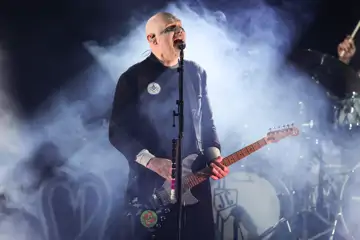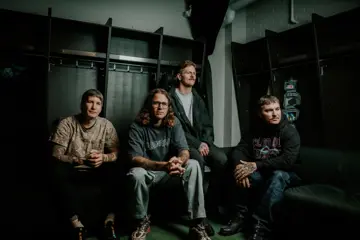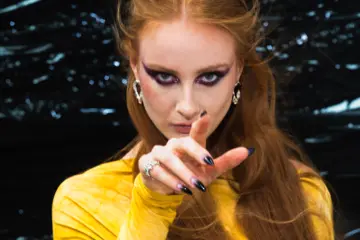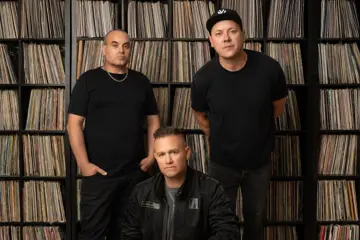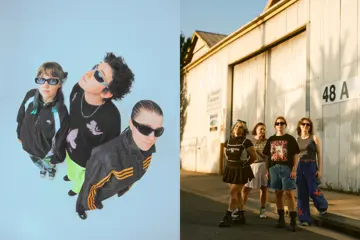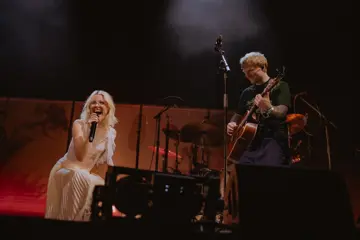DOWNTON ABBEY
★1/2
When a royal visit alights upon a small English village in 1927, an British army man turned-Irish Republican double agent seizes the opportunity to undertake a deadly, dissident mission: an assassination attempt upon the life of the King of England. The only man left who can stop him? It’s someone our terrorist trusts, a former Irish Republican agitator turned upper class gentleman; a moral compass who believes in independence but not through ill-advised violence. As our two men face off at the climactic moment, there’s a chase through crowds at a military gala, an at-the-last-minute rescue, a fistfight, and a jolly good show.
This sounds like the plot to an entire movie, but in Downton Abbey, it gets about five minutes of screen time as one of many bizarrely truncated B stories. Hell, it’s probably about a D story, given that the film is far more concerned with when silverware will be polished, who gets to serve dinner, and whether or not a kitchenmaid flirted with an attractive plumber. As a vast cast all get their own stories, be they comic, melodramatic, or so poorly judged as to beggar belief, it feels a lot like you’re watching some bad soap opera, where all the ensemble has to have their own story lines, some of which involve some attempted regicide.
I have no idea if Downton Abbey, the TV series, is a bad soap opera. I’ve never seen it, which makes me just like Dame Maggie Smith herself. To some ardent fans, this might seem like dereliction of critical duty. But, if this Downton Abbey movie is worthy of being an actual movie, screened in actual cinemas, then shouldn’t it surely be able to stand alone, on its own two feet? Be a discrete, meaningful artwork that doesn’t require you to have undertaken six seasons of preparatory study?
All on-screen evidence suggests that this certainly isn’t worthy of cinemas, nor even some two-part ‘special event’ mini-series. And that I, humble film critic, was out of place and out of luck when sat down to view something that seems like so much school reunion fan service. If you hadn’t already sunk hours into the ins-and-outs of the titular mansion’s upstairs/downstairs gossip, posturing, politics, and relationships, there’s not much to be taken from the Downton Abbey movie.
Don't miss a beat with our FREE daily newsletter
Dame Maggie may get a bunch of great lines, but there’s nothing else to recommend it. The direction mixes sound stage interiors with sweeping British Tourist board drone shots shot at magic hour, the mise-en-scène essentially ‘Ye Olde Period Piece Wealth Porn’. There’s a host of scandalous revelations, from secret illegitimate children to the identity of a thief stealing silverware to a tour through a surprisingly swinging, live-Dixieland-band-boasting gay-bar-underground in rural 1920s Britain. People say ‘Downton Abbey’ endlessly, as if the dialogue is echoing an insecure rapper doubling down on self-styled branding. And the chief narrative isn’t an assassination attempt on a King, but a rivalry between entrenched Abbey staff and newly-arrived royal servants. Utterly unfunny hijinks ensue!
All this might just be a mediocre television spin-off if it weren’t for the horrifyingly regressive politics at play. All the British Tourist Board shots symbolise a multi-million dollar production that is, unto itself, an advertisement. For Brexit! Here, antiquated English social structures, class systems, and hereditary rule aren’t just depicted, but verily lionised. Characters wax rhapsodic about ancestry, lineage, the ways things were and should always be. When we salute God Save The King amidst the pomp and circumstance of red-coated military formation, there’s no irony.
And even the one true joy of Downton, Maggie Smith, gets roped into this gross ideological milieu. As the reigning matriarch in her final years, she’s clearly a symbolic stand-in for the real-life Queen of England, making plans for her Empire after her death.
Here, creator/writer/director Julian Fellowes, a 70-year-old Tory, lines up his own dramatic exemplar of noble succession, this less IP-monetising than two hours venerating archaic English traditions in an age where a once-European nation was betrayed by toxic English exceptionalism. Seeing this on big screens, whether or not you’ve seen it before on small screens, is a dire, depressing experience.
ANIMALS
★★★1/2
Sophie Hyde’s follow-up to 52 Tuesdays takes her from Adelaide to Dublin, the local filmmaker’s second feature an adaptation of Emma Jane Unsworth’s beloved girls-behaving-badly novel. Here, Holliday Grainger and Alia Shawkat play a pair of hard partying pals who, at the end of their drunken 20s, find their once-inseparable bond starting to fracture. The former starts to yearn for a life a little more straight, forsaking endless boozing for routines of writing and clarity of mind. The latter, in both rebellion and self destruction, steers ever harder into debauchery and oblivion.
Whilst Animals can, at times, submit to dramatic clichés (a guy-who-cheated subplot feels witless and generic, as if on loan from some other, much worse movie), there’s much to be admired with, and found in, its central dramatic relationship. Unsworth’s story is a defiant valentine to messy, contradictory people, and a serious study of the complexity of the kind of entangled friendships that, more than any romantic union, can define one’s 20s. In their two key roles, both Grainger and Shawkat are great, making their characters seem less like dramatic personas, more real, relatable, familiar human beings, full of life and humour and a sense of the ridiculous.
HALSTON
★★1/2
Oh hey, it’s another documentary about a fashion designer. This time it’s Halston. And you’ll never guess what happens: a parade of celebrity talking heads tell a rags to riches to rags tale — illustrated through archival imagery — of a ‘genius’ designer who came from out of nowhere, stitched glorious gowns, did shit-tons of coke, and became a horribly ego-maniacal monster. His death was, still, a tragedy, and, now, we can only look back at the fashions, and marvel accordingly for 100 pro-forma minutes.
Director Frédéric Tcheng seemingly has little desire to do anything than recount this all with linearity (it literally goes year by year, with ‘1968’ etc shown as intertitles), whilst openly inflating the designer’s myth. There’s a fanciful framing narrative, with a narratorial character (played by Tavi Gevinson!) digging through the archives in search of the buried truth, but nothing else about Halston hints at docu/fiction hybridity, or shows any desire to rise above mediocrity. Though currently showing in cinemas, this title is custom made to clog up streaming service menus; Halston less a motion picture than mere ‘content’.
MEMORY: THE ORIGINS OF ALIEN
★★★1/2
In discussing Ridley Scott’s 1979 masterwork, Memory: The Origins Of Alien also employs documentary talking heads. But, they’re talking heads with a difference: rather than seeking out celebrity testimonials or insider gossip, director Alexandre O. Philippe takes a more academic approach. When someone associated with Alien’s making evokes the movie’s relationship to ancient mythology, Egyptian gods, or predatory wasps, Philippe brings in some PHD level expert in Greek myth, Egyptology, or Entomology. This makes for a documentary that is deliberately heady; a deep, intellectual study of a cinematic text and the reasons it has become its own kind of modern day myth.
Philippe previously did this with 78/52, a meticulous, fastidious breakdown of Alfred Hitchcock’s own masterwork, 1960’s Psycho; its level of nerdery openly displayed by a title that references the amount of cuts/camera set-ups in its infamous ‘shower scene’. Here, Alien is studied as expression of the collective subconscious, distillation of fear, part of the cinematic continuum (both influenced by and influence on other movies), and product of a particular 1970s milieu. Given the film plunged into the darkness of humanity, the nature of fear, and the origin of life in the universe, this isn’t a doc lacking in things to talk about. The conversation is engaging, the ideas are wild, and the movie at the centre of it all is, indeed, a true classic.




